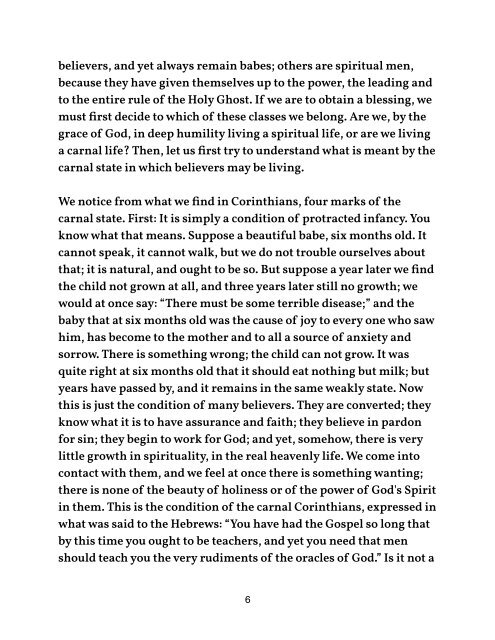The Master's Indwelling Andrew Murray
In this eye-opening devotional, Murray helps Christians find assurance in the knowledge that God is "all in all." Derived from a series of addresses delivered by the author in 1895, Andrew Murray's compilation of 13 meditations provides the biblical interpretation to encourage Christians throughout different stages of their spiritual walk. As a South African Dutch Reformed leader and pioneering missionary, Murray's ecumenical acumen is evident in his detailed pieces, which are both reflective and enlightening. Murray's devotional is loosely organized into three sections. The first section, in which Murray emphasizes a transition from what he calls the "Carnal" into the "Spiritual," focuses on the importance of self-sacrifice. The second section highlights the importance of prayer and the Christian's responsibility in preparation for the Kingdom. The final section encourages Christians to revel in the rewards of a faithful walk with the Lord: blessings of the spirit, peace in God's grace, and the ultimate comfort in Christ's redemption.
In this eye-opening devotional, Murray helps Christians find assurance in the knowledge that God is "all in all."
Derived from a series of addresses delivered by the author in 1895, Andrew Murray's compilation of 13 meditations provides the biblical interpretation to encourage Christians throughout different stages of their spiritual walk. As a South African Dutch Reformed leader and pioneering missionary, Murray's ecumenical acumen is evident in his detailed pieces, which are both reflective and enlightening. Murray's devotional is loosely organized into three sections. The first section, in which Murray emphasizes a transition from what he calls the "Carnal" into the "Spiritual," focuses on the importance of self-sacrifice. The second section highlights the importance of prayer and the Christian's responsibility in preparation for the Kingdom. The final section encourages Christians to revel in the rewards of a faithful walk with the Lord: blessings of the spirit, peace in God's grace, and the ultimate comfort in Christ's redemption.
Create successful ePaper yourself
Turn your PDF publications into a flip-book with our unique Google optimized e-Paper software.
elievers, and yet always remain babes; others are spiritual men,<br />
because they have given themselves up to the power, the leading and<br />
to the entire rule of the Holy Ghost. If we are to obtain a blessing, we<br />
must first decide to which of these classes we belong. Are we, by the<br />
grace of God, in deep humility living a spiritual life, or are we living<br />
a carnal life? <strong>The</strong>n, let us first try to understand what is meant by the<br />
carnal state in which believers may be living.<br />
We notice from what we find in Corinthians, four marks of the<br />
carnal state. First: It is simply a condition of protracted infancy. You<br />
know what that means. Suppose a beautiful babe, six months old. It<br />
cannot speak, it cannot walk, but we do not trouble ourselves about<br />
that; it is natural, and ought to be so. But suppose a year later we find<br />
the child not grown at all, and three years later still no growth; we<br />
would at once say: “<strong>The</strong>re must be some terrible disease;” and the<br />
baby that at six months old was the cause of joy to every one who saw<br />
him, has become to the mother and to all a source of anxiety and<br />
sorrow. <strong>The</strong>re is something wrong; the child can not grow. It was<br />
quite right at six months old that it should eat nothing but milk; but<br />
years have passed by, and it remains in the same weakly state. Now<br />
this is just the condition of many believers. <strong>The</strong>y are converted; they<br />
know what it is to have assurance and faith; they believe in pardon<br />
for sin; they begin to work for God; and yet, somehow, there is very<br />
little growth in spirituality, in the real heavenly life. We come into<br />
contact with them, and we feel at once there is something wanting;<br />
there is none of the beauty of holiness or of the power of God's Spirit<br />
in them. This is the condition of the carnal Corinthians, expressed in<br />
what was said to the Hebrews: “You have had the Gospel so long that<br />
by this time you ought to be teachers, and yet you need that men<br />
should teach you the very rudiments of the oracles of God.” Is it not a<br />
6

















